DUSON Partnerships Extend Across Campus & Around the World

At Duke, a culture of interprofessional and interdisciplinary collaboration is becoming the norm, rather than the exception. DUSON faculty and students are redefining how creative partnerships can deepen professional understanding, innovate solutions to complex challenges and drive discovery and translation of knowledge in new and exciting ways. These collaborations are challenging traditional silos of research, clinical practice, and community service.
Technology in Research Across the Lifespan
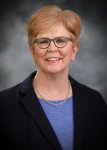 Sharron Docherty PhD, PNP-BC, FAAN, associate professor, has taught and conducted research at Duke University School of Nursing for nearly two decades. About five years ago, she noticed things were beginning to change. She experienced an increase in the number of opportunities to collaborate on research projects with other disciplines and received invitations from other professions approaching the School looking to collaborate on research projects.
Sharron Docherty PhD, PNP-BC, FAAN, associate professor, has taught and conducted research at Duke University School of Nursing for nearly two decades. About five years ago, she noticed things were beginning to change. She experienced an increase in the number of opportunities to collaborate on research projects with other disciplines and received invitations from other professions approaching the School looking to collaborate on research projects.
“It’s a really exciting time to be doing health research from a collaborative stand-point,” she said, noting the trend toward creating multi-disciplinary teams. “It’s really fun, especially in the analysis phase, where you’re looking at the data and you ask, ‘Why do you think we achieved these findings?’ Team members from different disciplinary lenses bring unique perspectives to under-standing the findings.”
Docherty’s most recent study, PiCASO, is a collaboration with Gary Maslow, MD, assistant professor of psychiatry and behavioral science in the pediatrics department of the Duke University School of Medicine. They recently received funding from the National Institute of Nursing Research to test an intervention for adolescents with childhood onset chronic health conditions (including cancer survivors, sickle cell disease, lupus and Type I diabetes) as they transition to young adulthood.
“Adolescents managing chronic conditions do so with intensive involvement from their parents and their health care provider team,” Docherty said. “Once they hit the period in adolescence when it is time to transition to adult care services, they enter this really vulnerable period of time.”
Normal developmental milestones, like going away to college or getting a part-time job, can be harder for young people who have grown accustomed to adults managing their day-to-day medical care. Part of the $3 million grant goes to training peer coaches who have suffered from chronic conditions themselves. These coaches are young people who model self-management behaviors and use nondirective support to help the adolescents learn to do the same by following an integrated curriculum.
The coaching intervention provides nondirective support — it helps the adolescents learn to manage their conditions — via a smartphone app the investigators can monitor. In the intervention phase of the study, 10 peer coaches are working with 225 adolescents over a 12-month period. The data analysis will look for changes in activated self-management of the adolescents — such as wanting to take on more self-care of their illness, especially as they transition from pediatric care to adult care.
In addition to Maslow, the research team includes a psychologist, a social worker, two pediatricians, one nursing pre-doctoral student and one psychology pre-doctoral student. “These problems are very complex. Our approach does not simply view the challenge through the lens of a physician who looks at complex medical treatments, or the lens of a nurse who looks at adolescents and parents trying to manage their medications and their home care. We also have a social worker, a researcher who thinks about their interactions with the health care system,” Docherty said. “Everyone is coming together, bringing all these perspectives to create a better potential solution.”
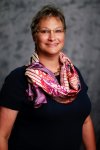 In addition to the shared knowledge interprofessional research creates, collaborating at a systems level affords learning opportunities for researchers and students alike. Associate Professor Tracey Yap, PhD, RN, WCC, CNE, FGSA, FAAN, who was awarded the Presidential Early Career Award for Scientists and Engineers (PECASE) last summer, is studying pressure-injury prevention by examining the effectiveness of the current nursing protocol that requires nursing staff to turn patients every two hours to prevent pressure injuries from developing; her team theorized instead that turning them every three or even every four hours would still safely prevent these injuries. Yap and her co-investigator, Susan Kennerly, professor at the East Carolina University College of Nursing, have been collaborating for over 10 years. “We’re actually just wrapping up our last intervention site for this clinical trial, and we haven’t had one pressure injury, so we’re pretty excited about this,” Yap said.
In addition to the shared knowledge interprofessional research creates, collaborating at a systems level affords learning opportunities for researchers and students alike. Associate Professor Tracey Yap, PhD, RN, WCC, CNE, FGSA, FAAN, who was awarded the Presidential Early Career Award for Scientists and Engineers (PECASE) last summer, is studying pressure-injury prevention by examining the effectiveness of the current nursing protocol that requires nursing staff to turn patients every two hours to prevent pressure injuries from developing; her team theorized instead that turning them every three or even every four hours would still safely prevent these injuries. Yap and her co-investigator, Susan Kennerly, professor at the East Carolina University College of Nursing, have been collaborating for over 10 years. “We’re actually just wrapping up our last intervention site for this clinical trial, and we haven’t had one pressure injury, so we’re pretty excited about this,” Yap said.
Cueing to facilitate nursing staff to remember to reposition for pressure injury prevention is a big part of Yap’s research, so the technology being used in this clinical trial visually notifies nurses on a computer screen if a certain patient needs to be repositioned. Yap said, “If the patient repositions himself, it resets the whole system again and the nurses don’t have to do it; but if the patient needs help to reposition, the system notifies the nursing staff on the screen.” Particularly in short-staffed or extremely busy situations, repositioning falls second to higher-priority matters, Yap said. With a cueing system like this one, nursing staff would be alerted as to which patients truly need repositioning. Any member of the nursing team can see the cue and step in to do the task. One of the critical parts of the data collection in Yap’s study was the introduction of a new technological device that attaches to the chest and notes the position of the patient every 10 seconds and provides a timestamp of each movement. “We’ve never had this type of information before,” she said.
This technology was used in nine different nursing homes serving about 1,100 patients from May 2017 to October 2019. The second phase of the grant will cover the statistical analysis of this rich data set. Yap noted that the national study team includes different partners with specific skills: University of Utah, East Carolina University, Loyola-Baltimore, University of Southern California, and University of Texas-Houston, as well as independent research consultants Leaf Healthcare (which created the time-stamp patient monitoring device), and the nursing home company.
These partners provide varying expertise; for example, different methods of statistical analysis. “We just received an Administrative supplement of almost $250,000 to the grant which will allow us to further examine movement differences for patients with dementia, as well as those who are obese” Yap said “Right now, the way we treat prevention for people is a one-size-fits-all approach — the standard protocol for all patients to be turned a minimum of every two hours may not be appropriate for some.
Demonstrating that patients may not need such frequent interventions may change that protocol, which would free up nursing staff time and increase efficiency. It would also provide better quality of life for the patient. Fewer interruptions mean better sleep, likely preventing issues with visual perception that could have contributed to falls. Also, patients who sleep better might have more positive outlooks and better brain functioning, which can lead to better health outcomes overall.
Working nationally with a variety of collaborators on a large study like this offers wonderful opportunities for DUSON students to interact with top scholars, Yap said.
“Much of what our team does and the way our research runs is as much quality improvement as it is research,” she said. “So it benefits both DNP and PhD students to see this live and in action.”
Improving Quality of Life and Quality of Care
For some people, the best way to learn is by doing. When applied to nursing education, that’s where clinical experiences come in. At Duke University School of Nursing, students benefit from accessing clinical expertise via partnerships with local organizations such as Duke Health and the Veterans Administration, and through preceptors at clinics and hospitals nationwide.
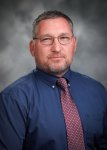 The school’s newest clinical partner, Cohen Veterans Network (CVN), promises to make a significant contribution in one of the most critical areas of need: mental health care for veterans. The Cohen Network provides free mental health care for veterans and their families. Sean Convoy DNP, PMHNP-BC, assistant professor and a veteran of the military, said the national program strives to expand the mental health care workforce who serve this vulnerable and underserved population, adding that one of the biggest problems health care now is identifying and preparing psychiatric providers across the country.
The school’s newest clinical partner, Cohen Veterans Network (CVN), promises to make a significant contribution in one of the most critical areas of need: mental health care for veterans. The Cohen Network provides free mental health care for veterans and their families. Sean Convoy DNP, PMHNP-BC, assistant professor and a veteran of the military, said the national program strives to expand the mental health care workforce who serve this vulnerable and underserved population, adding that one of the biggest problems health care now is identifying and preparing psychiatric providers across the country.
“These CVN locations are free-standing mental health clinics across the country, and we are going to be able to partner with them to send our students for the last two semesters of their practicum to give them experience delivering psychiatric care,” Convoy said. Funded by a four-year, $2 million Health Resources and Services Administration (HRSA) grant, the program aims to support six students this year, eight the next, and then 10 in each of the final two years of the grant.
Convoy found the Cohen Network when he was researching ways to help veterans and their families access the mental health care they need. Partnering with the Department of Veterans Affairs had proven too unwieldy, so he contacted a friend at the Cohen Network. The more he learned, the more he knew Duke could help the Cohen Network and the Cohen Network could help Duke.
“The preceptor environment nationally for nurse practitioners is anemic,” Convoy said. “Because we have students in a distance-based program from across the country, I wanted to be able to identify preceptor locations for them that are proximal to where they live.” This is an opportunity for DUSON to develop a strategic relationship with a national organization, and for Cohen to partner with an educational leader that can help advance the cause of their nonprofit. Additionally, Convoy notes, the Cohen Network will have access to some of the best nursing students in the country who, through these months-long assignments, become excellent potential employees.
The Cohen Network’s clinical model is an excellent fit for DUSON students, Convoy said. “They employ a team-based concept of operation with a varied complement of mental health providers that includes psychologists, psychiatrists, licensed clinical social workers, psychiatric mental health nurse practitioners and licensed marriage and family therapists. Cohen’s model of care creates an unmatched synergy that drives excellent patient outcomes,” Convoy went on to say.
“We want to build and nurture this relationship because it is a great example of interprofessional practice and education.”
This unique collaboration will also allow DUSON to collect, analyze and share information with the health community at large about these types of partnerships. “Cohen was extremely motivated to do this,” Convoy said. “I expect to see a lot of good information that can be translated beyond the university to help inform what best practices are when it comes to partner-ship with a preceptorship.”
Because part of the grant criteria includes tracking students post-graduation, Convoy said the partnership will generate information about whether students stay connected with supporting vulnerable and underserved populations. As one of the overriding goals of the partnership is to grow mental health providers, this knowledge will be invaluable,
“We’re hoping these individuals bloom where they’re planted and we really begin to build the infrastructure around all of the sites that Cohen has strategically picked,” Convoy said. “I’m hoping for a legacy relationship with Cohen.”
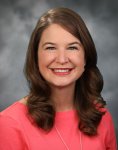 Another cutting-edge partnership that started earlier this summer focuses on Duke Doctor of Nursing Practice (DNP) Quality Improvement Scholars Program. Staci Reynolds, PhD, RN, ACNS-BC, CCRN, CNRN, SCRN, holds a joint appointment with the Duke University Heath System (DUHS) and DUSON. In that role she has been the Duke Advancement of Nursing Center of Excellence (DANCE) coordinator. DANCE is the academic-practice partnership between Duke Health System Nursing and DUSON. She also oversees a one-year postdoctoral program for DNPs to study quality improvement, data analytics, implementation science, and advanced leadership.
Another cutting-edge partnership that started earlier this summer focuses on Duke Doctor of Nursing Practice (DNP) Quality Improvement Scholars Program. Staci Reynolds, PhD, RN, ACNS-BC, CCRN, CNRN, SCRN, holds a joint appointment with the Duke University Heath System (DUHS) and DUSON. In that role she has been the Duke Advancement of Nursing Center of Excellence (DANCE) coordinator. DANCE is the academic-practice partnership between Duke Health System Nursing and DUSON. She also oversees a one-year postdoctoral program for DNPs to study quality improvement, data analytics, implementation science, and advanced leadership.
While PhD postdocs are the norm for PhD Programs, a DNP postdoc is a new idea. Typically, DNP student projects were conducted on a small scale, Reynolds said, but the DNP Quality Implementation Scholars Program allows practicing DNPs to take on a system-wide improvement project at their practice site.
“When Duke DNP students graduate, we want their skill set to include leading and implementing large quality improvement projects,” Reynolds said. “This program gives the scholars more in-depth knowledge and skills about how to lead in a large system.” This insight is crucial because hospitals are graded on quality, which takes into account nursing-specific indicators such as hospital-acquired infections, patient falls and pressure injuries, Reynolds said. Nurse leaders look to these indicators as a way to measure how well a system works.
The first cohort is comprised of four DNP-prepared leaders: two at Duke University Hospital, one from Duke Regional Hospital and one from Duke Raleigh Hospital. The scholars are working on the same project at their various sites — decreasing central line-associated blood stream infections (CLABSIs).
“It’s very helpful to have a point of contact person at each of those facilities,” Reynolds said, noting that she meets with the scholars every other week. “This postdoc experience is allowing them to build additional skills and expertise with hands-on practice.” The partnership between DUSON and DUHS will also collect data from each of the scholars that will inform future teaching as well as clinical practice. Additionally, these scholars interact with other quality leaders in the health system to help them see how nurse experts can bring unique skills to the quality implementation.
The program, which began in May, involves three semesters of coursework, including a one-hour practicum each semester and three classes: data informatics, advanced quality improvement and leader-ship. At the end of the postdoc program, Reynolds said, these DNP-prepared nurses will help lead the way toward improved quality and more cost-efficient care at their locations, adding that the hope is that other health systems will want to partner with DUSON.
“It’s exciting to be on the cutting edge of that,” Reynolds said. “It’s helping to utilize the expertise within the School. We have experts in quality improvement, data analytic, informatics, and leadership, so we’re able to really help prepare these DNP-educated nurses at a higher level.”
Bidirectional Global Partnerships
Almost half of the Accelerated Bachelor’s of Science in Nursing (ABSN) students at Duke participate in a global clinical experience through the school’s Office of Global and Community Health Initiatives (OGACHI). That remarkable statistic reflects the School’s commitment to global partnerships and preparing nurses with a global understanding.
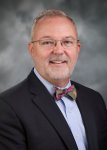 “I don’t know of any school of nursing that has the number of students that we do who engage in these global experiences on an annual basis,” said OGACHI Associate Dean Michael Relf, PhD, RN, ANEF, FAAN. In addition to student exchanges, Duke ABSN students also work in either clinics abroad or in the local Durham community. OGACHI also facilitates global faculty exchanges through its visiting scholars program and collaborative research projects. Relf insists that all projects that OGACHI undertakes meet one key criteria: that each partnership be bidirectional and mutually beneficial.
“I don’t know of any school of nursing that has the number of students that we do who engage in these global experiences on an annual basis,” said OGACHI Associate Dean Michael Relf, PhD, RN, ANEF, FAAN. In addition to student exchanges, Duke ABSN students also work in either clinics abroad or in the local Durham community. OGACHI also facilitates global faculty exchanges through its visiting scholars program and collaborative research projects. Relf insists that all projects that OGACHI undertakes meet one key criteria: that each partnership be bidirectional and mutually beneficial.
“Those four little words are important. In partnership, organizations come to the table with different capacities and different needs and we optimize each other’s synergies and needs,” Relf said. “Both groups get something out of it.”
Particularly with cross-cultural partnerships, where there can be a tendency to stereotype, it’s important that exchanges be truly reciprocal, Relf said. “If not, we’re the classic ‘ugly American’ and we’re either taking advantage of people, or we’re being paternalistic, thinking we know what is best.” Cross-cultural exchanges help students understand that there are different ways of achieving outcomes with different resources, Relf said. And the immersion on both ends of the exchange highlights for students how critical under-standing cultural differences is to giving the best patient-centered care.
DUSON currently has agreements with 10 health organizations and foreign universities in countries such as Honduras, Tanzania and the Philippines, with the longest running partnership being Barbados, where DUSON has had agreements with the Barbados Ministry of Health and Barbados Community College (BCC) for more than a decade.
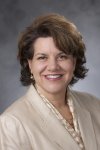 In addition to a yearly student exchange with Barbados, there is faculty collaboration and joint research. In spring of 2020, DUSON will host a faculty member from BCC who is developing a post-graduate diploma course to address a shortage of critical care nurses in that country. Valerie K. Sabol, PhD, ACNP, GNP, CNE, ANEF, FAANP, FAAN and chair for the Division of Healthcare in Adult Populations, will mentor that scholar.
In addition to a yearly student exchange with Barbados, there is faculty collaboration and joint research. In spring of 2020, DUSON will host a faculty member from BCC who is developing a post-graduate diploma course to address a shortage of critical care nurses in that country. Valerie K. Sabol, PhD, ACNP, GNP, CNE, ANEF, FAANP, FAAN and chair for the Division of Healthcare in Adult Populations, will mentor that scholar.

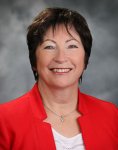 DUSON’s global partnerships run the continuum from the decade-long partnership with Barbados to two newly created agreements with the University Of KwaZulu-Natal (KZN) School of Nursing and Public Health and the University of Cape Town in South Africa. Under one agreement, Duke Doctor of Nursing Practice (DNP) students will have the opportunity to collaborate with KZN students and an interprofessional team that includes trauma surgeons and nurses. In return, the KZN students will work with DNP Program Director Katherine C. Pereira, DNP’12, MSN’02, RN, FNP-BC, ADM-BC, FAAN, FAANP, CNRA Faculty, and Susan G. Silva, PhD, associate professor, to study evidence-based care and quality improvement using data management and analysis. Relf noted that the DNP CRNA program is possibly the only one in the country that provides DNP students the opportunity to do global scholarly projects.
DUSON’s global partnerships run the continuum from the decade-long partnership with Barbados to two newly created agreements with the University Of KwaZulu-Natal (KZN) School of Nursing and Public Health and the University of Cape Town in South Africa. Under one agreement, Duke Doctor of Nursing Practice (DNP) students will have the opportunity to collaborate with KZN students and an interprofessional team that includes trauma surgeons and nurses. In return, the KZN students will work with DNP Program Director Katherine C. Pereira, DNP’12, MSN’02, RN, FNP-BC, ADM-BC, FAAN, FAANP, CNRA Faculty, and Susan G. Silva, PhD, associate professor, to study evidence-based care and quality improvement using data management and analysis. Relf noted that the DNP CRNA program is possibly the only one in the country that provides DNP students the opportunity to do global scholarly projects.
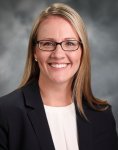 With the new University of Cape Town collaboration, Assistant Professor Marta Mulawa, PhD, MHS will research the impact of social networks on HIV treatment adherence. Mulawa’s South African partners will have access to technology platforms for data dissemination and gathering.
With the new University of Cape Town collaboration, Assistant Professor Marta Mulawa, PhD, MHS will research the impact of social networks on HIV treatment adherence. Mulawa’s South African partners will have access to technology platforms for data dissemination and gathering.
The longer the relationship, the deeper the understanding of the needs and potential for mutually beneficial exchanges. “Every partnership will be different,” Relf said. With some organizations, it starts with a commitment to work together to find areas of collaboration, with an eye toward long-term potential and sustainability. “If we believe there’s several areas of mutual interest, we just need to find what those are and bring them to life.”
DUSON actively seeks promising new global partners, and fields requests from many organizations looking to partner with the School because of its international reputation for excellence. Choosing which relationships to pursue can depend on finding that sweet spot of reciprocity.
“Different people have different expectations, and we try to negotiate and compromise and work within it,” Relf said. “But the guiding principle has to be bidirectional.” And as with any joint effort, he added, partnerships must be flexible and adaptive to change, and may eventually end.
“There’s a natural turnover in organizations: the head of school that was interested in founding the partnership takes a new position and is no longer there,” Relf said.
“The next head of school that comes in isn’t so interested in global per se, or they have different priorities or different goals and objectives they want to accomplish in their strategic plan. Some of that is a natural evolution.”
Providing a robust array of cultural immersion opportunities globally (or even in clinics locally) is an important part of student learning at DUSON, but more does not always mean better.
“We don’t want our partnerships to be simply a MOU (Memorandum of Understanding) that collects dust on a shelf,” Relf said. “We would rather have a limited number of partnerships, but have them be alive and well.”